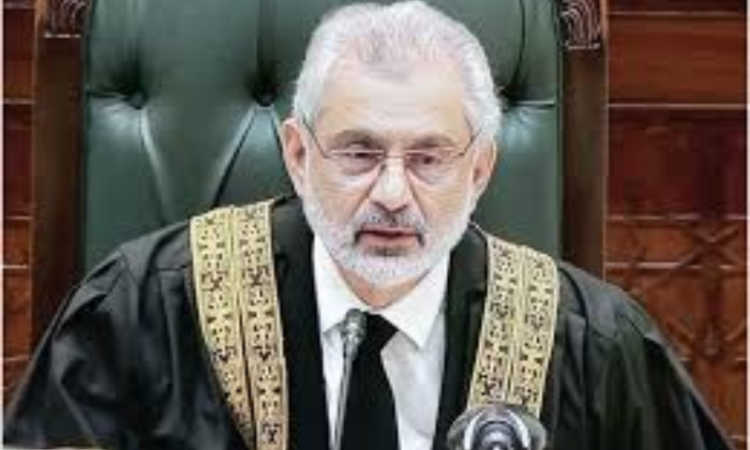Islamabad, October 22,2024-Two minority judges of the Supreme Court of Pakistan, including Chief Justice Qazi Faez Isa, have issued their minority verdict on the case of reserved seats. They stated that since a final decision has not yet been made in the case, its implementation is not binding, and no contempt of court proceedings can be initiated for non-compliance. The detailed verdict has been released by Chief Justice Qazi Faez Isa and Justice Jamal Khan Mandokhail.
In this minority decision, Chief Justice Qazi Faez Isa included an additional note spanning 14 pages. He pointed out that highlighting constitutional violations and shortcomings is his duty, expressing hope that the majority judges would review and rectify their mistakes.
He further emphasized that the Constitution of Pakistan is written in clear and simple language, and thus, he hopes the majority judges will correct their errors. Chief Justice Isa noted with regret that review petitions against the majority’s short decision were not scheduled for hearing, with Justices Muneeb Akhtar and Mansoor Ali Shah opposing the scheduling of such petitions in a committee meeting.
The detailed verdict argues that the majority’s short decision from July 12 and the subsequent detailed decision on September 23 are filled with errors, with additional constitutional mistakes found in the majority’s clarifications issued on September 14 and October 18. It states that the eight majority judges established their own virtual court, and no final decision on the appeals in the reserved seats case was ever made.
The decision elaborates that since a final ruling has not been reached, implementation is not binding, and non-compliance does not warrant contempt of court proceedings. Justice Qazi Faez Isa mentioned that a review petition for the reserved seats case was suggested for scheduling after the court’s recess, but his fellow judges, Justices Mansoor and Muneeb, voted against it.
The minority judges, in their additional note, expressed hope that the majority judges would address their mistakes and ensure that Pakistan is governed according to the Constitution.
It is noteworthy that, in a short order issued on July 12, the Supreme Court declared the decisions of the Peshawar High Court and the Election Commission null and void in the case of reserved seats for the Sunni Ittehad Council, ruling that Pakistan Tehreek-e-Insaf (PTI) was entitled to the reserved seats. On March 14 of this year, a five-member larger bench of the Peshawar High Court had unanimously dismissed the petition filed by the Sunni Ittehad Council regarding the reserved seats. A 13-member full bench of the Supreme Court, led by Chief Justice Qazi Faez Isa, declared the Election Commission’s decision unconstitutional, with Justice Mansoor Ali Shah penning the judgment. Chief Justice Qazi Faez Isa, along with Justices Jamal Mandokhail, Naeem Afghan, Aminuddin Khan, and Yahya Afridi, opposed the petitions.








